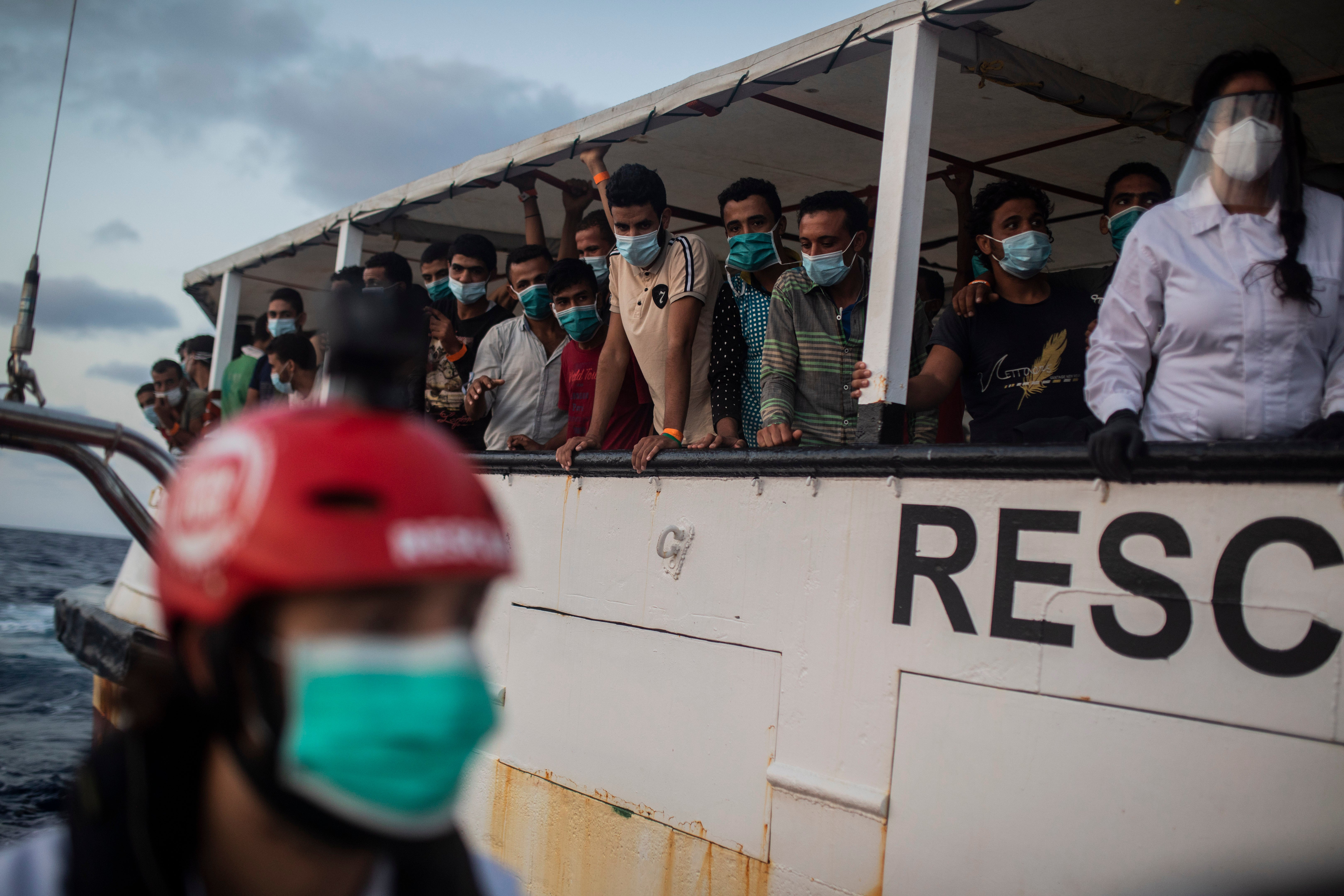UN agencies urge "fresh start" for EU's failed asylum policy
Two U_N_ agencies are appealing to the European Union to set aside years of divisive debate over the best way to manage migrants and refugees and make a “fresh start.”

Your support helps us to tell the story
From reproductive rights to climate change to Big Tech, The Independent is on the ground when the story is developing. Whether it's investigating the financials of Elon Musk's pro-Trump PAC or producing our latest documentary, 'The A Word', which shines a light on the American women fighting for reproductive rights, we know how important it is to parse out the facts from the messaging.
At such a critical moment in US history, we need reporters on the ground. Your donation allows us to keep sending journalists to speak to both sides of the story.
The Independent is trusted by Americans across the entire political spectrum. And unlike many other quality news outlets, we choose not to lock Americans out of our reporting and analysis with paywalls. We believe quality journalism should be available to everyone, paid for by those who can afford it.
Your support makes all the difference.Two U.N. agencies on Tuesday appealed to the European Union to set aside years of divisive debate over the best way to manage migrants and refugees and make a “fresh start,” as Brussels prepares to unveil a major overhaul of Europe’s failed asylum system.
The arrival in Europe of well over 1 million migrants, most of them refugees fleeing the war in Syria, in 2015 sparked one of the EU’s biggest political crises. The 27-nation bloc has been riven by disputes over who should take responsibility for those fleeing to Europe and whether other EU countries should be obliged to help the bloc's hard-hit Mediterranean nations like Greece, Italy and Malta.
In a new effort to end the wrangling, which kept up even as people languished in broken-down boats in the Mediterranean waiting for help or were crowded into squalid migrant camps, the EU’s executive arm, the European Commission, on Wednesday will make public its proposals for a “Pact on Migration and Asylum.”
“The pact presents the opportunity for Europe to show that it can uphold the fundamental right to asylum, while cooperating on pragmatic policies to identify those in need of international protection and share responsibility for them,” U.N High Commissioner for Refugees Filippo Grandi said.
The EU relies on the UNHCR and the International Organization for Migration to help execute its policies for dealing with people seeking sanctuary or better lives in Europe. Given the bitter divisions, much of the EU’s focus has been on preventing migrants from leaving North Africa or Turkey in the first place.
The two U.N. agencies underlined that “the current approach in the EU is unworkable, untenable and often carries devastating human consequences,” They are calling for “common EU action to take responsibility for search and rescue, and for disembarking people rescued at sea.”
Brussels is likely to use the fire that destroyed the overcrowded Moria refugee camp on the Greek island of Lesbos on Sept. 9 as a “never again” moment. But aid groups had warned for years about the state of that camp, where more than 12,000 people lived in facilities meant for 3,000.
Other widely-criticized moves include the EU deal with Turkey, under which the EU paid billions of euros toward the protection of Syrian refugees there in exchange for Ankara stopping them from heading to Europe.
The EU also pays and trains the coast guard in conflict-ravaged Libya to prevent people from leaving the lawless North African nation. It has also tried to secure other deals with North African countries to persuade them to discourage would-be migrants.
IOM Director General Antonio Vitorino said it will be important “for the EU to ensure that longer-term policy is coherent in its internal and external aspects, is rooted in genuine partnerships, and aligned with existing international frameworks and agreements.”